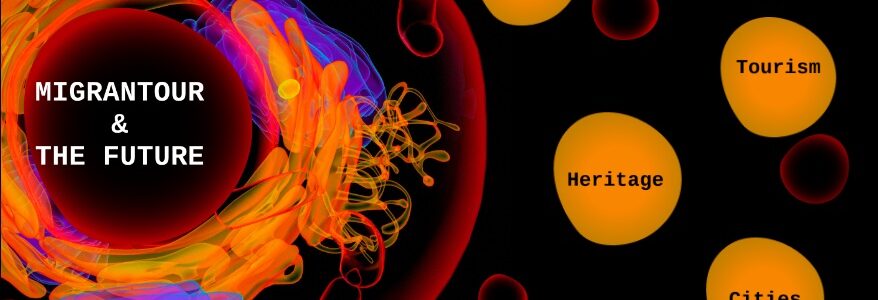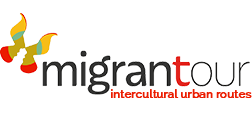
On Monday 24 November, the first webinar in a series of online training sessions for intercultural companions from across the Migrantour network took place. For this first meeting, we chose to talk about a crucial topic: the future.
During Migrantour walks, we focus mainly on the present: the challenges of migration today and the places in each neighbourhood that are socially and culturally significant at this moment in time. We also often reflect on the past: how our cities have changed over time, how different migratory flows have shaped them, and what memories and traditions each person carries with them.
However, we talk less often about the future. Yet Migrantour is a project that looks precisely in that direction. What kind of society do we want to build through intercultural dialogue? After all, every migration story is, in its own way, a journey into the future, just as heritage itself consists of passing on culture and knowledge to new generations. Our cities are also full of places where the future is imagined, designed and planned.
So, how can we bring this idea of the future into our Migrantour walks?
During the first part of the webinar “Intercultural Futures. How to Include Speculative Thinking in Migrantour Walks”, together with anthropologist Francesco Vietti, we discussed how to draw inspiration from fields such as sociology, demography and economics. There is no formal discipline called ‘futurology’, but these areas of study help us understand where current trends might lead. Can we already imagine what migration flows will look like in fifty years’ time? Or how many people will be living in Migrantour network cities in 2050?
On the other hand, we saw how we can also turn to stories: novels, films and works of fiction that have shaped the way we imagine tomorrow. Science fiction and fantasy may seem far from reality, yet they have provided us with powerful images and ideas that influence the way we think about change, diversity and the world to come. Because in truth, when we talk about the future, we are always talking, in some way, about the present.
In the second part of the webinar, Migrantour intercultural companions from different cities worked in groups to exchange ideas: they shared the ways in which they already bring the future into their walks, discussed new ways of doing so and reflected on the future they want to help shape. They also exchanged practical tips and creative activities to try during the walks (especially with children and students), along with useful data, readings and resources to further explore the topic.
Through this moment of meeting and discussion, we imagined together what the cities and citizens of tomorrow might look like and how every step of a Migrantour walk can contribute to building this shared future.
